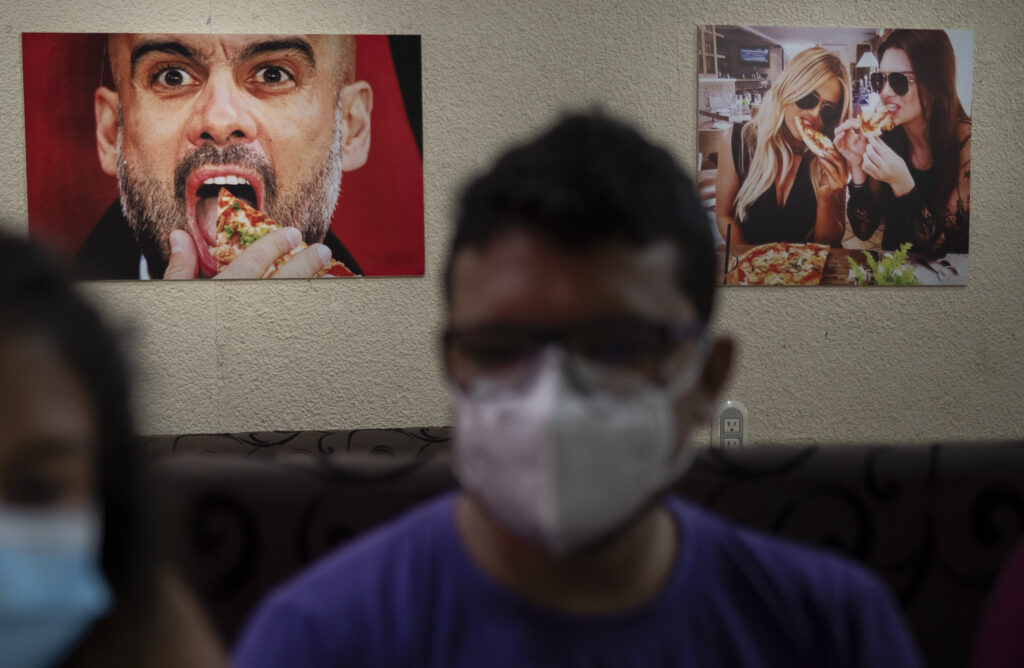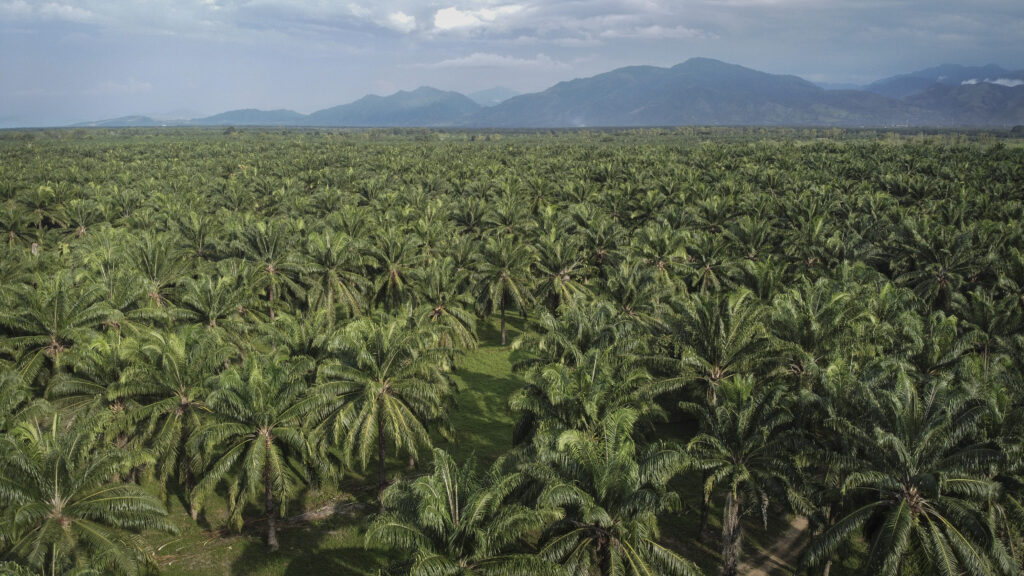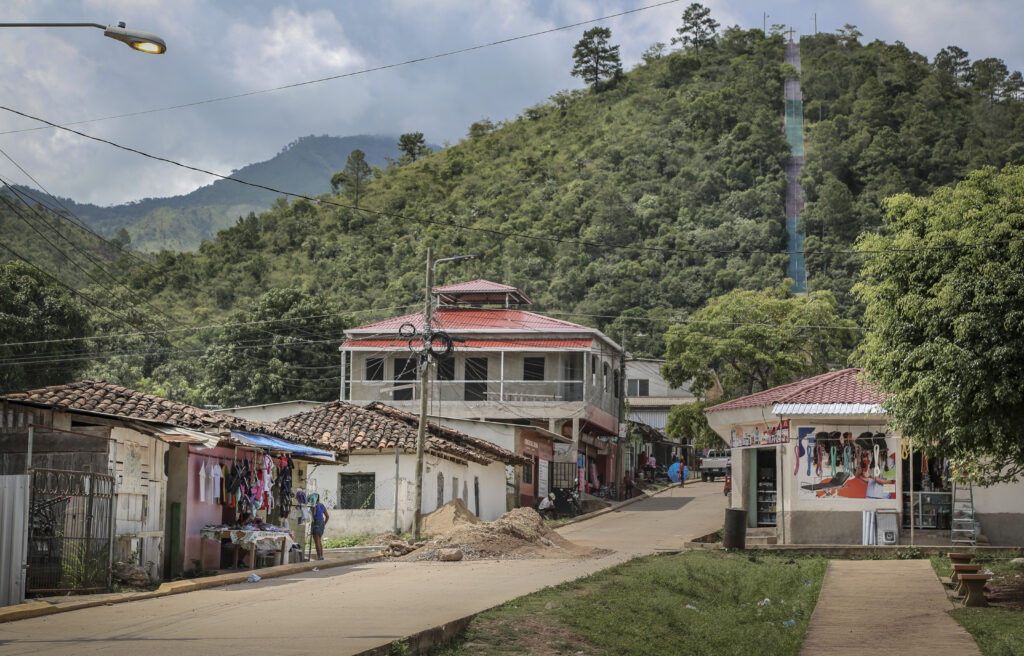
Peter Schurmann. Península 360 Press
Estoy en un autobús que atraviesa la ciudad de San Pedro Sula -en el norte de Honduras-, en la primera etapa de un viaje nocturno hacia el este para cubrir el paso de los migrantes por la frontera con Guatemala. A través de la ventana, los letreros de las cadenas de comida rápida estadounidenses se desvanecen, uno tras otro, cuadra tras cuadra: Pizza Hut, McDonalds, Subway, Burger King, Popeyes. Más adelante, el patrón se repite.
En uno de los países más pobres del hemisferio occidental, estos símbolos caricaturescos del dominio estadounidense se elevan por encima del paisaje urbano -como almuédanos engalanados con luces de colores que llaman a los fieles a la oración- sin que la pobreza les afecte. Me pregunto si esto es lo que encontrarán los futuros arqueólogos cuando busquen los escombros del imperio estadounidense.
Honduras enfrentará elecciones nacionales a finales de este mes, mismas que podrían determinar la futura trayectoria de la nación centroamericana. A la derecha, el alcalde de Tegucigalpa, Nasry Asfura, “Papi”, miembro del Partido Nacional, que ha controlado el país desde que un golpe de Estado en 2009 derrocó al entonces presidente Manuel Zelaya. A la izquierda, la esposa de Zelaya, Xiomara Castro, quien ha prometido liderar un nuevo rumbo para la conflictiva nación en la que, según las estadísticas, uno de cada cinco residentes anhela irse.
En efecto, un vistazo a los encabezados revela un país asediado por la violencia, la pobreza endémica, la crisis climática y la corrupción gubernamental desenfrenada, todo ello exacerbado por el férreo control que los cárteles internacionales de drogas ejercen sobre amplios sectores de la sociedad.
Y, sin embargo, sólo puedo pensar en la comida rápida.
Las cifras son sorprendentes. En Tegucigalpa, la concentración de franquicias de comida estadounidense es una de las más altas de América Latina. A cambio de la creación de puestos de trabajo, estas empresas tienen acceso libre de impuestos a los consumidores locales, que disfrutan de un sabor sumamente procesado y muy poco nutritivo del “sueño americano”.
Como escribe Tanya Kerssen en su libro “Grabbing Power: The Struggles for Land, Food and Democracy in Northern Honduras”, la propiedad de estas franquicias se concentra en unas pocas familias con estrechos vínculos con el capital estadounidense, muchas de las cuales se sabe que apoyaron el golpe de Estado de 2009. “Honduras ofrece así un ejemplo sorprendente de cómo un sistema alimentario no democrático refleja y sostiene un sistema político no democrático”.
Los efectos sobre la salud y la cultura alimentaria del país en general son innegables, con preocupantes tasas de obesidad y diabetes, incluso cuando los agricultores locales luchan por competir con las importaciones agrícolas estadounidenses más baratas que han inundado su mercado.
Para muchos hondureños, las condiciones del país se han deteriorado constantemente en la década transcurrida desde el golpe de Estado de 2009, debido a que el Partido Nacional en el poder ha perseguido tenazmente un modelo extractivo de crecimiento que parece estar llenando los bolsillos de unos pocos mientras empobrece a la mayoría.
Ejemplos hay muchos, como el de las Zonas de Empleo y Desarrollo Económico (ZEDE), que ceden a los inversores extranjeros el control administrativo y legal de territorios completos, a expensas de los derechos sobre la tierra, los derechos humanos y la soberanía política.

En los alrededores de la ciudad de Progreso, a unas dos horas al este de San Pedro Sula, hay un mar de cultivos de aceite de palma, cuyas hojas se pierden en la distancia, cubriendo la región con un monocultivo controlado casi en su totalidad por una familia.
Se ha hablado mucho de los efectos perjudiciales del aceite de palma en los bosques y el clima en países ubicados desde África hasta Indonesia y en Sudamérica también. En Honduras, estos cultivos han penetrado con la fuerza bruta de una empresa colonizadora, que absorbe la vitalidad del suelo y deja a la inmensa mayoría trabajando en condiciones deplorables por una miseria. De aquí a diez años, estos campos serán prácticamente inservibles: la tierra que se encuentra debajo habrá perdido sus nutrientes y sólo quedará el rastro de años de pesticidas industriales.

En Yorito, un municipio a unos 200 kilómetros al norte de la capital, los habitantes recuerdan la llegada de una empresa minera dos años atrás. Armados con pistolas y machetes, los funcionarios de la empresa y sus guardias se instalaron en el centro del pueblo, decididos a reclamar el territorio, en gran parte indígena, como propio. Como señala este reportaje, las repercusiones de la minería en las comunidades pobres y marginadas de gran parte de Honduras se extienden a casi todos los aspectos de la vida: desde la salud física y ambiental hasta la representación económica y política.
De estos y otros ejemplos surge un panorama en el que los actuales gobernantes de Honduras han optado por poner la nación en venta al mejor postor, abrazando una fantasía neoliberal con el pretexto de que lo que es bueno para los intereses corporativos es bueno para la economía, sin importar el impacto en las comunidades locales y en la vida de las personas.
Y puede que tengan razón. Las nuevas cifras del FMI muestran que la economía de Honduras está en vías de alcanzar un crecimiento de entre el 8 y el 9 por ciento en 2021, más del doble de las proyecciones anteriores, a pesar de los graves impactos económicos del COVID-19 y de los huracanes Eta y Iota el año anterior.
Estas cifras son impresionantes, pero se presentan mientras miles de personas siguen huyendo del país, individuos como los que se quedan varados a diario en la frontera con Guatemala. Madres, padres y familias enteras que toman lo poco que tienen para escapar de un país en el que no ven ningún futuro.
Sentado en el mercado principal de Tegucigalpa, observo cómo las mujeres se afanan en la preparación de frijoles hervidos, carnes guisadas y otros manjares. Opto por una baleada, una gran tortilla de harina prensada a mano y rellena de frijoles, carne y queso fundido. Deliciosa.
Mientras como, pienso en las próximas elecciones y en la elección a la que se enfrentarán los hondureños y creo que, en cierto modo, se trata de una elección entre la continuación del reinado de las políticas de “libre” mercado defendidas por el gobierno actual -con todas sus calorías vacías- o algo más, algo que espero que sea más inclusivo, más nutritivo. Como la diferencia entre una Big Mac y una baleada.

